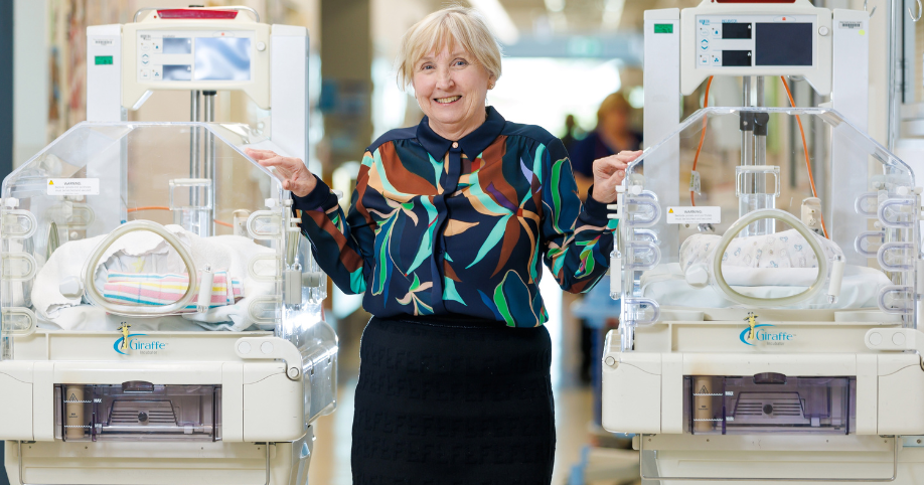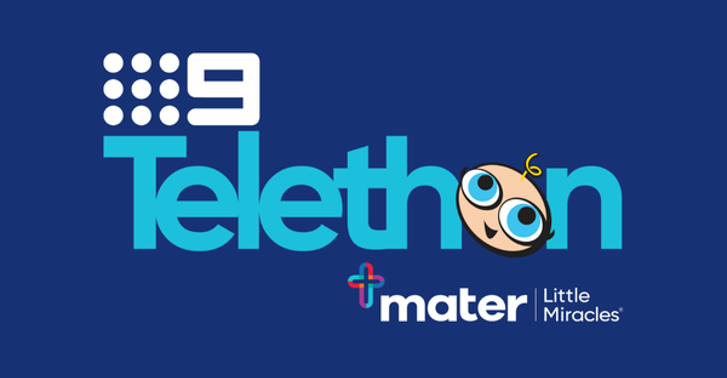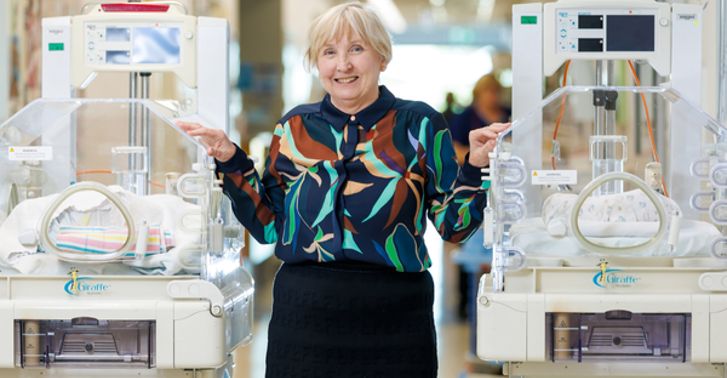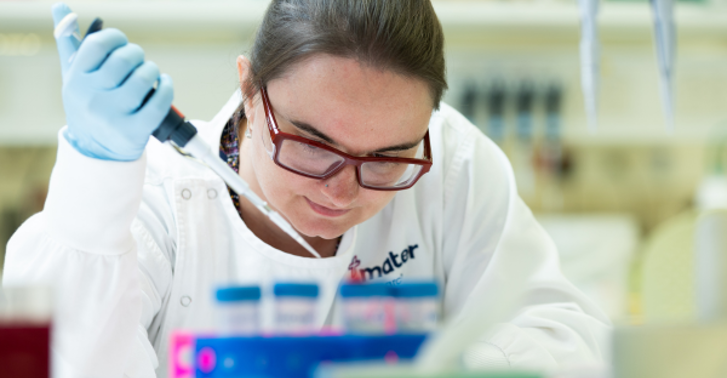
Neonatologist Professor Helen Liley has been caring for Mater mothers and babies for more than a quarter of a century and, this month, her milestone was celebrated at the 2024 Long Service Awards.
Raised by parents who placed a high value on the potential of medicine and science to continuously improve prevention and treatment, Professor Liley said some of the most significant advances over the past 25 years have been the most simple ones.
“While technology is important, one of the biggest changes that has excited me has been the increasing emphasis on family-centred care,” she said.
“This includes lots of involvement of parents in the day-to-day care of their babies, including kangaroo care where parents are encouraged to spend long periods of time with their baby skin-to-skin.
“There’s also been the routine introduction of methods of maintaining normal temperature immediately after birth for preterm infants and using things like plastic bags.
“You also have delayed cord clamping and therapeutic hypothermia which is a cooling therapy for babies with hypoxic ischaemic encephalopathy - brain injury caused by a lack of oxygen.
“We now use high-tech servo-controlled mattresses, but we started out with cool gel-packs from the fridge.”
Prof Liley, whose father was a medical practitioner renowned for developing techniques to improve the health of foetuses in utero, said advances in medications had also been incredibly helpful.
"Mater has done important research on something that many would hardly consider a drug – caffeine – which not only helps to keep preterm babies breathing well after birth but probably also improves their development,” she said.
Since 4 January 1999, Prof Liley has exemplified dedication, innovation, and compassion in caring for countless newborns and their families as well as leading groundbreaking research impacting care models globally.
She says the greatest reward is seeing families take their children after they have recovered from illness or complications.
“While there is always reward and satisfaction in direct patient care, combining that with experience in training and research, and evidence appraisal means you can help not just the patient in front of you, but potentially many thousands or even millions of others,” she said.
“Some of the research studies we have performed in the neonatal unit have been ground-breaking, and some of the multicentre trials we have contributed to have changed clinical practice worldwide.”



